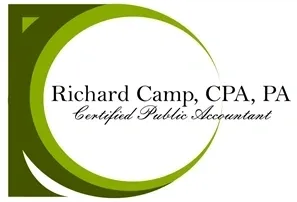Financing
Although the process is complex and frustrating, raising capital is the most basic of all business activities. When looking for financing, there are various sources to consider. For most new businesses, the main source of capital comes from savings and other forms of personal resources. There are better options available than credit cards that are often used for financing, even a small business loan.
When beginning, entrepreneurs usually look to private sources like friends and family. Generally, the money is loaned at a low interest rate or interest-free, which is very beneficial at the beginning.
The most common source of funding, not including personal resources, are credit unions and banks which will provide a loan if it is possible to show that your offer is worthwhile. Other sources are venture capital firms that aid businesses in exchange for partial or equity ownership.
Getting a Loan
It is highly recommended that you prepay as much of your mortgage as possible every month, which will drastically reduce the total amount that you pay.
However, there are times when this could be disadvantageous.
If you are in a situation where you don't have funds to cover three to six months of expenses, it is recommended that you save that amount before you pay additional amounts on your mortgage.
If you have a large amount of credit card debt, over the long run, you will save more money by knocking down those high-interest loans first.
There also may be times when that money would be more wisely invested in the market, depending on the expected rate of return versus how much you would save in early payments.
Loan FAQ
The co-signer enters an agreement to be responsible for the repayment of the loan if the borrower defaults. A lender will usually not go after the co-signer until the borrower defaults, but they can lawfully go after the co-signer at any time.
It has been stated by finance companies that in the case of a default most co-signers actually pay off the loans that they have co-signed for including the legal and late fees that end up being tacked on. Clearly this can be a large financial burden, and it can also reflect negatively on the co-signer's credit.
If you do agree to co-sign on a loan for someone, you can request that the financial institution agree that it will refrain from collecting from you unless the primary borrower defaults. Also, make sure that your liability is limited to the unpaid principal and not any late or legal fees.
Upon co-signing you may have to brandish financial documents to the lender just as the primary borrower would have to.
Co-signing for a loan gives you the same legal responsibility for the repayment of the debt as the borrower. If there are late payments, this will affect your credit as well.
If you are asked to co-sign for someone, you may want to provide another option and suggest that they get a secured credit card. This way, they can build up their own credit history and not open themselves up to the possibility of taking on a debt too large, placing themselves and you in financial danger.
Bank Accounts FAQ
Keep in mind that banks are always required to notify you of the fees for their accounts. The best account to choose is usually the one with the lowest fees, regardless of the interest rate.
Keep an eye out for potential extra charges when shopping for checking accounts. Ask about monthly fees, check processing fees, and ATM fees. Also be wary of cost-free checking accounts, as the bank may charge you if your balance drops below a certain amount. Also, the charges for printing new checks can often be much higher at your bank than through an outside printing provider.
In this day and age, it doesn't really benefit you to put money into an old-fashioned "passbook" savings account. Often monthly account fees overshadow the small amount of interest you will earn. Instead, put your money into a checking account. If it is a larger sum, look into a money market account. In this type of account, you will earn more interest than in a savings account, but watch out for additional charges if your balance drops too low.
ATM Transactions
There are a variety of electronic transactions one can execute:
- ATMs allow you to bank electronically, get cash, make deposits, pay bills, or transfer funds between accounts. These machines are used with a debit or ATM card and a personal identification number.
- Point of Sale Transactions. Some ATM cards and debit cards can be used in stores to charge merchandise. Money is electronically drawn from your account and paid to the store.
- Pre-authorized transfers. This allows for the automatic deposit of funds or withdrawal of funds to or from your account. For example, one can authorize the direct deposit of wages, social security, or dividends directly to their account. You can also pre-authorize your bank to make automatic transfers for bill paying.
- Telephone transfers. You can transfer funds from one of your accounts to the other, or order bill payments over the phone.
- Most ATMs provide you with a receipt for the transaction, as do point-of-sale purchases. These receipts are the records of your electronic transactions and should be kept. Additionally, your periodic bank statement will show all the electronic transfers performed. This monthly statement is your proof of payment to another party and is your record for tax and other purposes. Any inconsistencies can be taken up with your bank.
